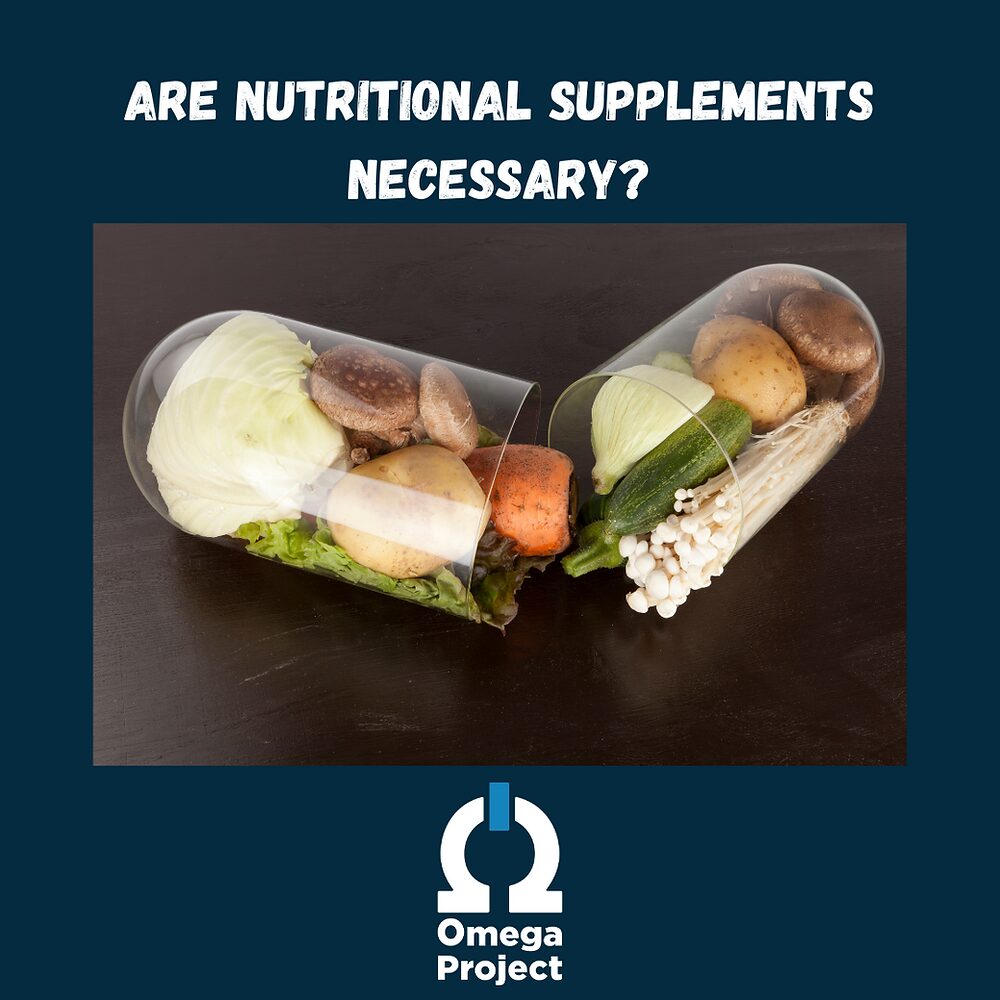Our standard American diet is full of carbohydrates, sugars and additives and lacking in the essential vitamins and minerals that our bodies crave. When we don’t get enough of the essential vitamins and antioxidants, it can leave us in a state of deficiency of vital nutrients need to help prevent disease and help the body run most effectively. While a healthy diet can provide you with a source of vitamins and minerals, adding in a quality nutritional supplement can top off your healthy diet and may be beneficial in ensuring your body runs how it was made.
When our body is stressed, dealing with medical complications and/or energy demanding ways of living, supplementation can help to meet those demanding needs your body is craving. Supplementation can also help to correct or balance deficiencies in our food. Our current farming practices have depleted soils of the quality vitamins and minerals once found there. Along with the addition of preservatives and other additives, our food supply contains large imbalances.
An example from the USDA:
In 1950, spinach on average contained 158 mg of iron per 100 grams. The average current iron content in the same amount of spinach is 2.7mg.
Nutritional (dietary) supplements come in many different forms, from liquid, to pill and powder. The goal of supplements is often the same- get enough nutrients and enhance health. Despite the amount of research done on vitamins and minerals and the number of individuals taking some sort of supplement, it doesn’t mean that they always work. Here are some common supplements that may benefit your health :
- Folic Acid- reduce birth defects when taken by pregnant women
- Vitamin D – strengthen bones
- Calcium – promote bone health
- Fish oil – support heart health
- etc.
In most cases when taking a supplement they are safe, but it is very important to talk to your doctor before taking any nutritional supplement as some supplements can pose healthy risks when dealing with other medications or medical conditions.
Of course, it is always important to try to get the majority of your nutrients from food sources. Here are some great examples of nutrients and a corresponding food source.
Calcium – Milk, yogurt, sardines, tofu
Folic acid – Fortified cereals, spinach, lentils, beef liver
Iron – Oysters, chicken liver, turkey
Omega-3 fatty acids – Salmon, sardines, flaxseed, walnuts, soybeans
Vitamin A – Sweet potato, spinach, carrots, cantaloupe, tomatoes
Vitamin B6- Chickpeas, salmon, chicken breast
Vitamin B12 – Clams, beef liver, trout
Vitamin D – Salmon, tuna, yogurt, fortified milk
Vitamin E – Wheat germ oil, almonds, sunflower seeds, peanut butter
If you are wanting to learn more about healthy diets, ways to get nutrients from a well balanced diet, or learn more about supplements- feel free to reach out!

